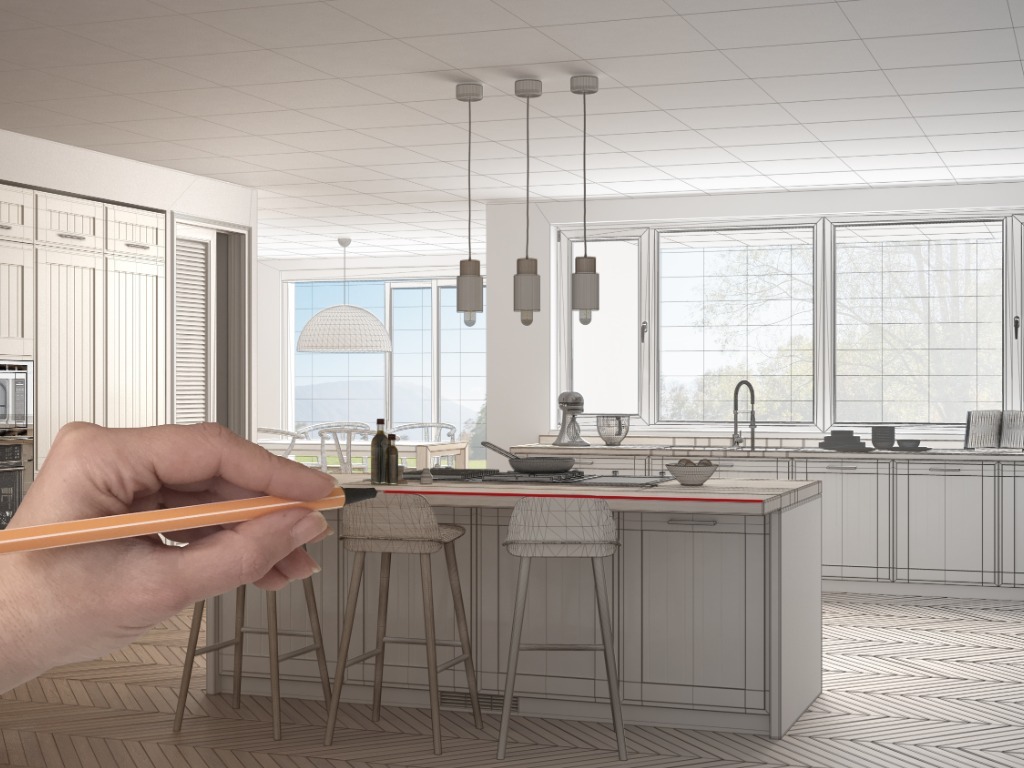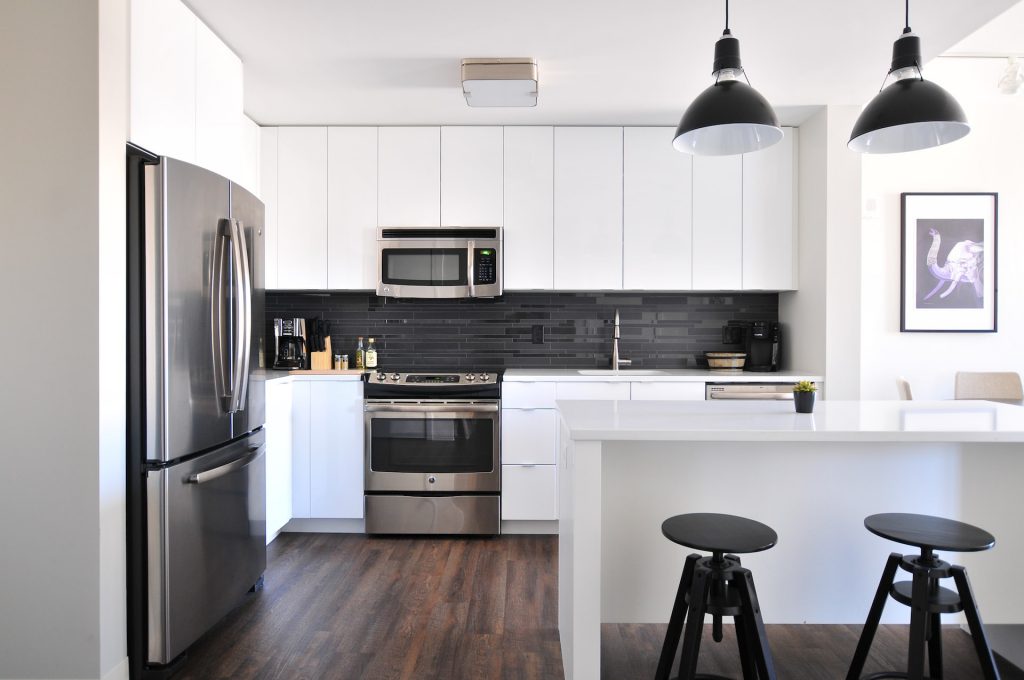

Get inspired
Renozee Latest News

Simplifying the Home Improvement Process
We all want to make our homes better, more comfortable spaces. But when it comes time to take on a remodel, it can feel like an overwhelming (and expensive) process. That’s why we’ve put together this list of must-dos for simplifying the home improvement process:
Know the area you’re working in
- Know the area you’re working in.
- Know the zoning laws.
- Know the costs of building materials, labor, and permits.
- Understand how much utilities will cost you to run this new addition or makeover and if they will be included in your rent or not (if so, you may want to consider moving).
- Figure out whether you should get insurance for your project before starting any work on it!
Understand your budget
One of the first things you need to do is figure out exactly how much money you have to spend. This will help with the rest of your home improvement process, as well as ensure that no one gets hurt during any part of it.
- Make a list of everything that needs to be done in your home–from fixing holes in walls and ceiling tiles, installing new lighting fixtures or baseboards, painting rooms, replacing old furniture with new pieces…the list goes on!
- Next make a separate list for each item on your first list (for example: Painting Room 1). On this second list write down all costs associated with completing each task (e.g., paint supplies + professional labor costs = total cost). Once this process is complete for all rooms/projects within the house then add up each number individually so that when combined together gives us an accurate estimate on how much money we’ll need overall before starting any projects at all.”

Know what you want out of the remodel
Before you begin your home improvement project, it’s important to know what you want out of it. This can be difficult if you haven’t done any research or planning. However, the more prepared you are when deciding on a remodel, the easier things will go, and the more likely that it will turn out well. Here are some questions to ask yourself before starting:
- What do I need? Do I have enough space for my family? Is there enough storage in our closets and cabinets? Can we afford new appliances or lighting fixtures (if applicable)? Do we have pets or children who might need extra features such as grab bars in bathrooms or high chairs at dining tables (if applicable).
- What don’t I need but want anyway? If there are certain design elements that would make life easier for everyone but cost too much money–such as adding an extra bedroom onto an existing house–it may be worth considering another option instead (like buying an RV). While this won’t give everyone their own bedroom like having another room would do, it will still provide some privacy while saving money overall since RVs don’t usually cost nearly as much as homes do!
Know how much time you have to complete the project
You need to know how much time you have to complete a project before starting it. This will help you plan and estimate how long it will take for each part of the project, which can then be broken down into smaller tasks or steps that are easier to manage.
If you’re working on something like painting an entire room or building a deck in your backyard, there are things like preparation work involved: cleaning out old furniture or removing debris from the ground before beginning construction work so that nothing gets damaged during construction activities. If there are pipes underfoot where you plan on installing new flooring later on (such as tile), those pipes may need additional protection during construction by being covered over with plastic sheeting until installation day arrives–and then carefully removed afterward!
It’s also important not only to know how much time we have available but also to know exactly what equipment needs doing what job; otherwise we might end up wasting precious minutes trying different methods when really one method would have been more efficient all along!
Get a good home improvement contractor
When looking for a home improvement contractor, it’s important to find one with a good reputation. Ask your friends and family members if they can recommend anyone who has worked on their home recently. Talk to the home improvement contractor about their experience and ask them for references. Check those references thoroughly–you want to make sure that they were happy with the work performed by this particular home improvement contractor!
A detailed estimate is also important; make sure that all materials are included in this estimate so there aren’t any surprises later on down the line when you get an invoice from Home Depot or Lowes stating that “your project requires additional materials” (as if you didn’t already know that). You should also be able to get answers about insurance coverage as well as licensing/certification information before signing any contracts with potential home improvement contractors. Finally, ask about how long each type of project typically takes; this will help ensure both parties understand how much time needs to be allocated before starting any work on-site so no one feels rushed into making decisions prematurely
Don’t overspend on materials or services
Don’t overspend on materials or services that don’t matter to your home’s overall appeal or comfort level, like granite countertops or hardwood floors unless they’re absolutely necessary for your lifestyle and space needs.
There are plenty of other options for countertops and floors that can be just as beautiful and durable but cost a lot less money. And while it may be tempting to splurge on these items, keep in mind that you’ll need somewhere else in the house where you can save money–like with paint colors!

Get frequent updates from your home improvement contractor as the job progresses so that you’re aware of how it’s going, and be sure to ask questions if something seems wrong or off-kilter at any point during the process
While it’s important to be aware of the work being done in your home, it’s equally important that you have a good relationship with your home improvement contractor. Make sure that they are trustworthy and reliable before hiring them for any job. You should feel comfortable asking questions about anything that seems off-kilter during the process, whether it be something small or large in nature.
If there are issues or problems along the way, don’t hesitate to bring them up immediately so they can be addressed quickly and efficiently!
Consider hiring a designer (or team) to help guide you through the home improvement process, especially if you have a complicated project — like adding an addition — on the horizon. The more complicated things get, the more essential it becomes to have someone who knows what they’re doing helping you out along the way
If you’re embarking on a complicated project, like adding an addition or completely transforming your kitchen, it’s time to bring in a designer. A good designer can help you make smart decisions about what materials and finishes will work best for your home. They’ll also offer suggestions about the layout of rooms, which will save time (because you won’t have to guess) and money (because they know where deals are).
When hiring a designer:
- Find someone who has experience working with people who are just starting out (like you!)
- Make sure their portfolio shows examples of projects similar to yours–and check references!
There are many steps involved in making improvements to your home, but it doesn’t have to be complicated if you make smart decisions from the start
Here are some tips for simplifying the home improvement process:
- Know your budget. Before you begin any project, it’s important to know how much money you can spend and how much time you want to devote to the project. This will help guide your decision-making process as well as help prevent unnecessary spending or delays due to unforeseen circumstances like bad weather or other issues that arise during construction projects (like finding out that there’s asbestos in your ceiling).
- Get a good home improvement contractor–and trust them! When hiring a home improvement contractor, look at their reviews online or ask friends who have hired them before what they thought of their work quality and customer service skills; these kinds of things are important because they affect how smoothly things go once construction starts happening on-site! Also, check references thoroughly so there aren’t any surprises later down line like surprise charges for extra materials used during the construction phase which could’ve been avoided had we known about them beforehand.”
Conclusion
We hope that this article has helped you understand the home improvement process a little better. If you’re wondering what kind of project might be right for your home, consider using the Renozee platform to hire the most affordable home improvement contractors in your area.
Be sure to visit the Renozee website to download your free property renovation checklist.

Are You A Real Estate Investor?
Download the Renozee App today to get connected to the most qualified contractors in town!


